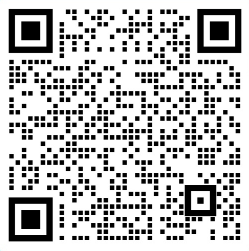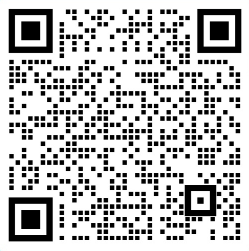IoT Applications
BLIIoT|New Version BE102 Modbus to IEC104 Gateway in Various Industrial IoT Applications
Views : 7385
Author : Luvia
Update time : 2024-03-15 17:42:10
Introduction
Many industrial systems use a mix of Modbus and IEC104 protocols. Converting Modbus to IEC104 allows different devices using these protocols to communicate seamlessly and exchange data effectively, enabling interoperability between diverse systems.
By converting Modbus to IEC104, organizations can integrate legacy Modbus devices with modern systems that use the IEC104 protocol. This integration ensures that all devices can communicate and work together within the same network or system.
IEC104 is an international standard protocol widely used in the energy sector and substation automation. Converting Modbus to IEC104 helps standardize communication across different devices and systems, simplifying maintenance and management processes.
Product Description
BE102 is a device or software solution that enables the translation and communication between Modbus devices and IEC 60870-5-104 (IEC104) compliant systems. It acts as an intermediary, allowing Modbus devices to communicate with IEC104-based systems seamlessly.
BE102 maps data points from Modbus devices to their equivalent representation in IEC104 data objects. This mapping ensures that the data is correctly interpreted and transmitted between the two protocols.
BE102 allows for monitoring and management of data exchanged between Modbus and IEC104. It provides features like data logging, event notifications, and diagnostic tools for troubleshooting and analysis.
Product features
1. Supports Modbus RTU, Modbus TCP, IEC104.
2. Supports connection to up to 50 devices and collection of 4,000 data points.
3. Supports 6 RS232/RS485 optional inputs.
4. It adopts embedded ARM MCU and is a product developed based on Linux OS system.
5. 2 Ethernet ports (WAN port and LAN port).
6. Support WiFi.
7. Support OpenVPN, SNMPV1/V2.
8. It supports routing functions and cascade switch data collection to facilitate the collection of more industrial equipment data. The software has complete functions and covers most common application scenarios.
9. It integrates the humanized configuration interface that BLIIoT adheres to, as well as remote configuration, remote firmware upgrade and other functions. Users only need to make simple settings.
10. It adopts a fastening structure and has a power supply design with anti-reverse connection protection.
11. It adopts BLIIoT's patented rail buckle technology and supports standard DIN35 rail installation and wall-mounted installation.
Product Design

Model List
Application
The conversion from Modbus to IEC 60870-5-104 (IEC104) finds application in various industrial sectors and scenarios where interoperability, data exchange, and standardized communication protocols are essential. Some common applications of converting Modbus to IEC104 include Substation Automation, Renewable Energy Systems, Smart Grids, Water and Wastewater Management, etc.
Many industrial systems use a mix of Modbus and IEC104 protocols. Converting Modbus to IEC104 allows different devices using these protocols to communicate seamlessly and exchange data effectively, enabling interoperability between diverse systems.
By converting Modbus to IEC104, organizations can integrate legacy Modbus devices with modern systems that use the IEC104 protocol. This integration ensures that all devices can communicate and work together within the same network or system.
IEC104 is an international standard protocol widely used in the energy sector and substation automation. Converting Modbus to IEC104 helps standardize communication across different devices and systems, simplifying maintenance and management processes.
Product Description
BE102 is a device or software solution that enables the translation and communication between Modbus devices and IEC 60870-5-104 (IEC104) compliant systems. It acts as an intermediary, allowing Modbus devices to communicate with IEC104-based systems seamlessly.
BE102 maps data points from Modbus devices to their equivalent representation in IEC104 data objects. This mapping ensures that the data is correctly interpreted and transmitted between the two protocols.
BE102 allows for monitoring and management of data exchanged between Modbus and IEC104. It provides features like data logging, event notifications, and diagnostic tools for troubleshooting and analysis.
Product features
1. Supports Modbus RTU, Modbus TCP, IEC104.
2. Supports connection to up to 50 devices and collection of 4,000 data points.
3. Supports 6 RS232/RS485 optional inputs.
4. It adopts embedded ARM MCU and is a product developed based on Linux OS system.
5. 2 Ethernet ports (WAN port and LAN port).
6. Support WiFi.
7. Support OpenVPN, SNMPV1/V2.
8. It supports routing functions and cascade switch data collection to facilitate the collection of more industrial equipment data. The software has complete functions and covers most common application scenarios.
9. It integrates the humanized configuration interface that BLIIoT adheres to, as well as remote configuration, remote firmware upgrade and other functions. Users only need to make simple settings.
10. It adopts a fastening structure and has a power supply design with anti-reverse connection protection.
11. It adopts BLIIoT's patented rail buckle technology and supports standard DIN35 rail installation and wall-mounted installation.
Product Design

Model List
| Model | WAN | LAN | COM(Default: RS485; RS232 Optional) | WiFi |
| BE102 | 1 | 1 | 2 | × |
| BE102W | 1 | 1 | 2 | √ |
| BE102P | 1 | 1 | 6 | × |
| BE102PW | 1 | 1 | 6 | √ |
Application
The conversion from Modbus to IEC 60870-5-104 (IEC104) finds application in various industrial sectors and scenarios where interoperability, data exchange, and standardized communication protocols are essential. Some common applications of converting Modbus to IEC104 include Substation Automation, Renewable Energy Systems, Smart Grids, Water and Wastewater Management, etc.
















